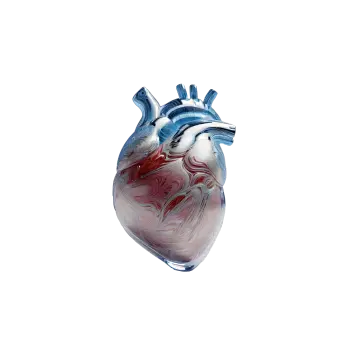Quick version
Heart failure, also known as cardiac insufficiency, means that the heart is not pumping blood as efficiently as it should. In women, the symptoms of heart failure can be somewhat different or more subtle compared to men. Here are some common symptoms women may experience with heart failure:
- Shortness of breath: Difficulty breathing, especially during exertion or when lying down. This is due to the heart's inability to pump blood effectively, leading to fluid buildup in the lungs.
- Extreme fatigue: A feeling of exhaustion and weakness, even with light exertion, is a common sign. Women may experience this as prolonged lack of energy.
- Swelling (edema): Swelling in the feet, ankles, legs, or abdomen may occur because fluid builds up in the body when the heart cannot pump blood effectively.
- Weight gain: Sudden or rapid weight gain can be due to fluid retention as a result of heart failure.
- Heart palpitations: A fast or irregular heart rhythm, where the heart may feel like it is skipping beats or pounding.
- Persistent cough: A prolonged cough, often with pink or white mucus, can occur due to fluid in the lungs.
- Digestive issues or nausea: Some women may experience nausea, bloating, or digestive problems as fluid builds up in the abdomen.
- Cognitive changes: Difficulty concentrating or confusion can occur, particularly in older women, as a result of reduced blood flow to the brain.
It is important to pay attention to these symptoms, especially if they occur together or worsen over time, and seek medical advice early to prevent complications. Women may sometimes delay seeking care because the symptoms can be harder to recognize or seem milder than they actually are. It is important to remember that women can also experience the same symptoms as men. You can read more about symptoms of heart failure in women and men.
























